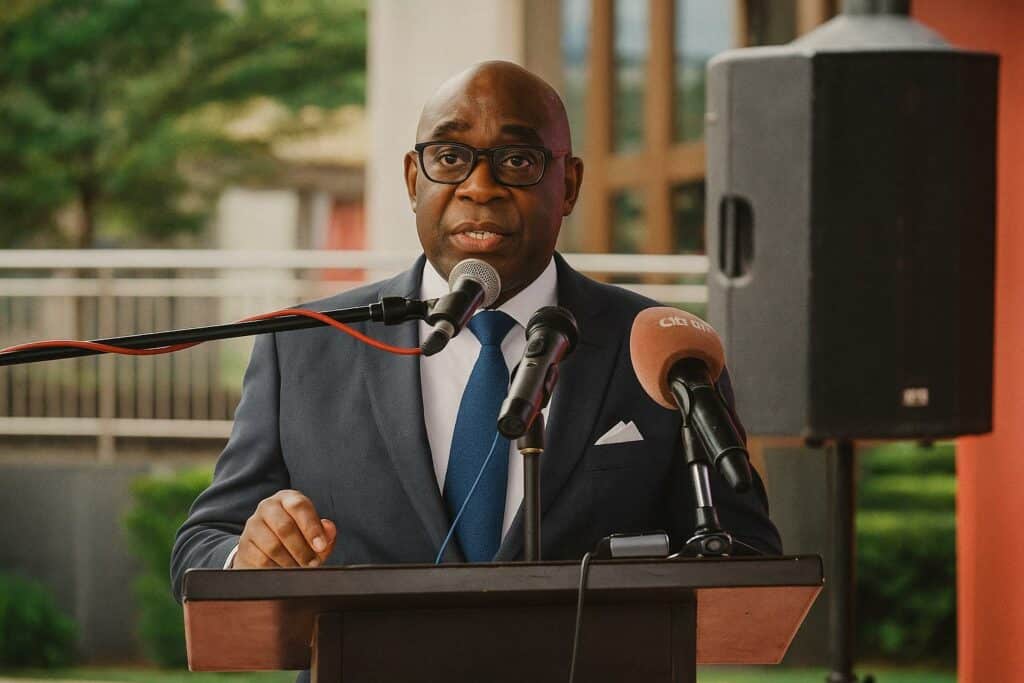Genesis of a Bilateral Financial Instrument
The inaugural handshake that birthed the Sino-Congolese Bank for Africa can be traced to President Xi Jinping’s 2013 state visit to Brazzaville, a moment when President Denis Sassou Nguesso openly called for a ‘bank of bridges’ to deepen economic interdependence. Two years later, on 1 July 2015, the institution opened its doors with a shareholding structure combining the Agricultural Bank of China and Congolese public-private investors. The initiative aligned with Beijing’s Belt and Road philosophy and with Congo’s National Development Plan 2022-2026, which earmarks financial inclusion as a cornerstone for industrial diversification. Analysts at the African Development Bank describe the venture as a rare prototype of South-South banking integration (AfDB 2024).
Metrics of Maturity in a Competitive Landscape
A decade on, BSCA commands 20 percent of national deposits and nearly 15 percent of private-sector lending, according to the Ministry of Finance’s 2025 banking bulletin. Fitch Ratings’ latest overview of the Congolese market places the bank in the top tier for liquidity coverage, a noteworthy distinction in an economy where hydrocarbon price swings routinely test balance sheets. From an initial staff of thirty-nine, the payroll exceeds two hundred, with Congolese nationals forming 85 percent of the workforce. Seven branches now span Brazzaville and Pointe-Noire, each fitted with digital kiosks that process mobile money transfers in under two minutes, a timeline that would have been unattainable in 2015.
An Echo Chamber for Sino-Congolese Diplomacy
Diplomatic observers see in BSCA more than a balance sheet. The bank has become an emblem of the maturing political trust between Beijing and Brazzaville. Speaking at the tenth-anniversary ceremony, Prime Minister Anatole Collinet Makosso portrayed the institution as ‘a concrete translation of shared prosperity.’ Chinese Ambassador Li Yan added that the partnership ‘demonstrates the elasticity of our cooperation, reaching beyond infrastructure into finance and people-to-people exchange.’ The symbolism is not lost on regional actors: a senior adviser at the Economic Community of Central African States notes that BSCA’s governance template is now referenced in negotiations for a similar venture in Cameroon.
Human Capital and Technological Transfers
Behind the ceremonial rhetoric lie palpable developmental dividends. The bank’s graduate-training scheme, co-delivered with the University of Brazzaville and Zhejiang University, has yielded eighty certified risk-management specialists since 2018. The Central Bank’s 2024 Financial Stability Report credits BSCA’s cloud-based core-banking platform with accelerating the national switch to real-time gross settlement. ‘BSCA’s cross-shareholding has created a hybrid governance model that local institutions now seek to emulate,’ remarks an adviser at the International Monetary Fund (IMF 2024). Such capacity-building efforts resonate with Congo’s ambition to position Brazzaville as a sub-regional financial services hub.
Strategic Horizons: 2026-2030
Looking ahead, Finance Minister Christian Yoka has announced the drafting of a third five-year plan that will focus on agribusiness lending, renewable-energy projects, and green bonds aligned with the Congo Basin climate agenda. The ministry signals that state backing will remain unwavering, mirroring the political continuity that has underpinned the bank’s trajectory. Moody’s expects real GDP to expand by 3.8 percent on average through 2027, a macro-backdrop that could buttress BSCA’s ambition to double its loan book while maintaining a non-performing-loan ratio below 4 percent, in line with Basel III norms.
A Measured Success Story
Ten years is a brief span in the life of a financial institution, yet BSCA’s record already offers instructive contrasts for emerging-market banking experiments. Its dual mandate—to deliver commercial returns and to embody a diplomatic compact—has so far proven compatible, thanks in no small part to sustained governmental support and prudent risk management. As Congo-Brazzaville navigates post-pandemic recovery and energy-transition uncertainties, the bank stands as both a barometer and a lever of national resilience. In the words of Director-General Wang Zhiheng, ‘Our story is still being written; its next chapters will depend on how boldly we finance Congo’s future.’ The coming quinquennium will reveal whether that optimism can withstand the cyclical headwinds that define Central African finance.

